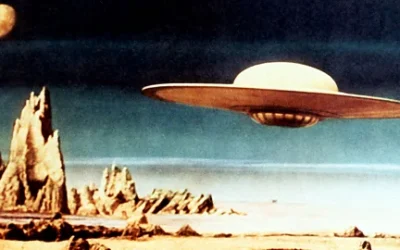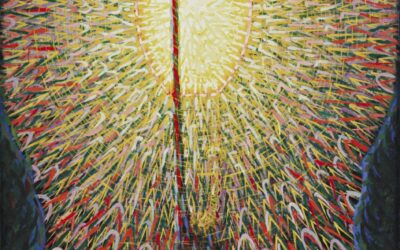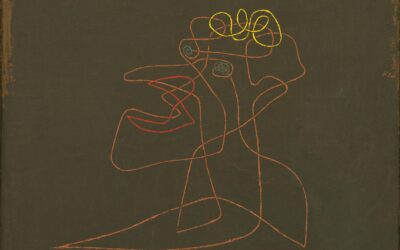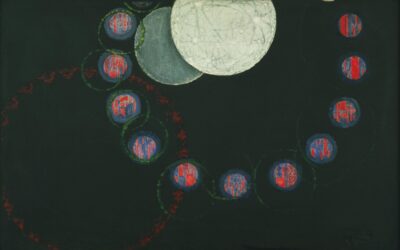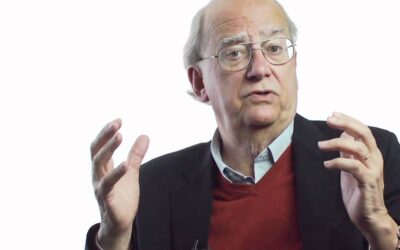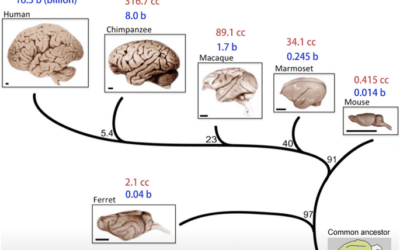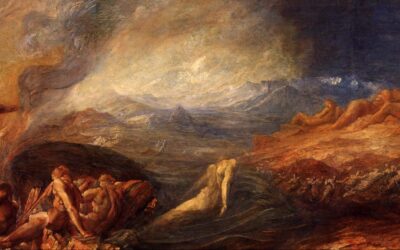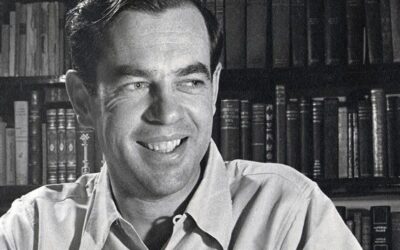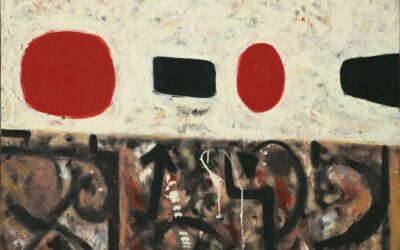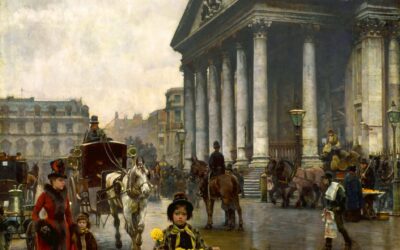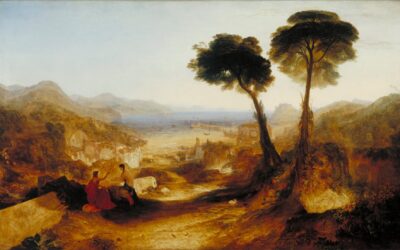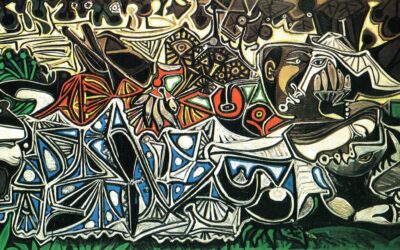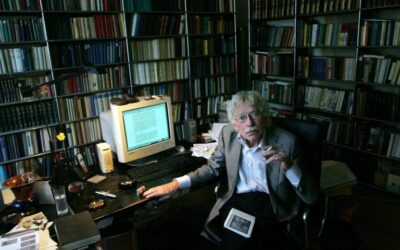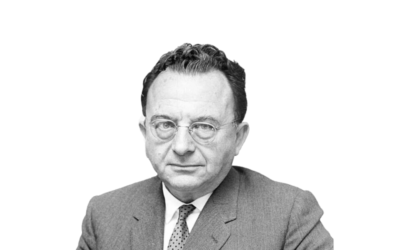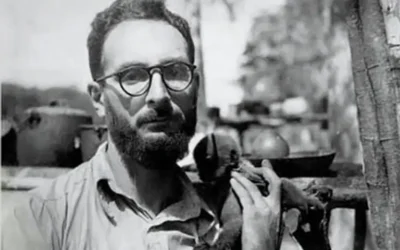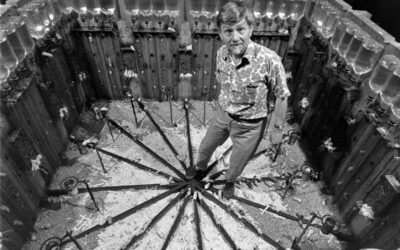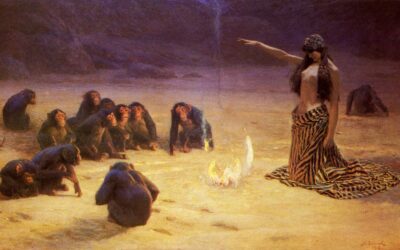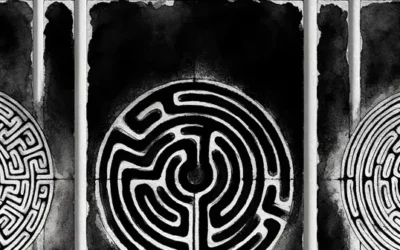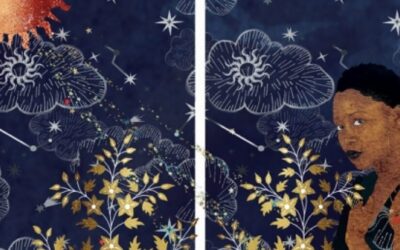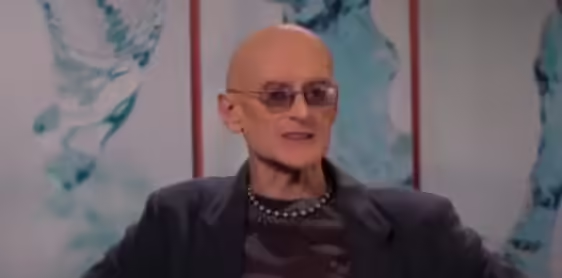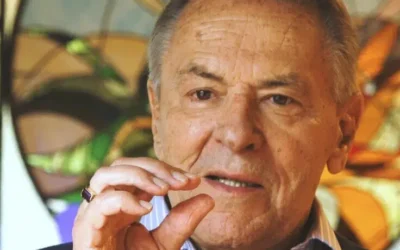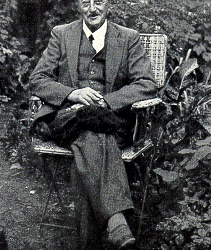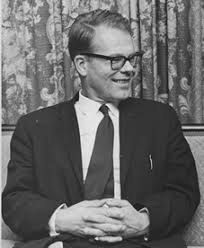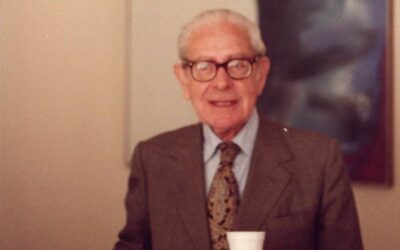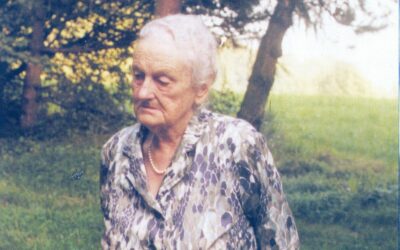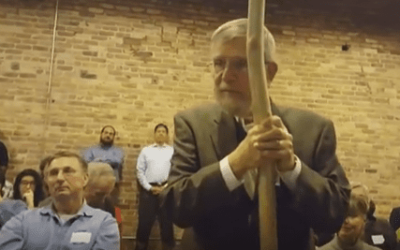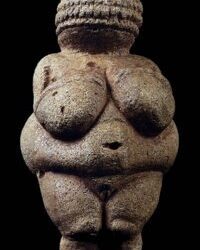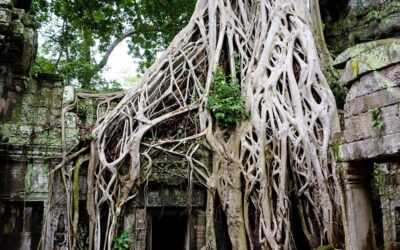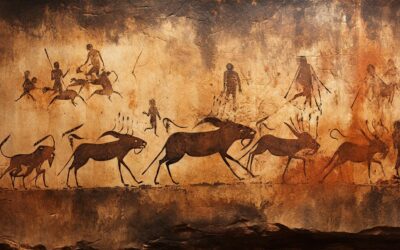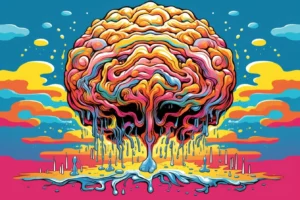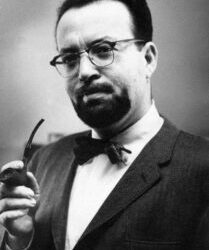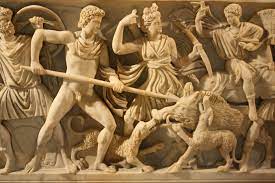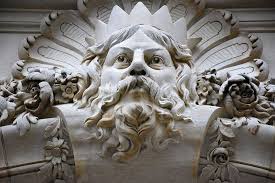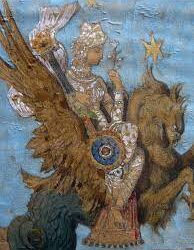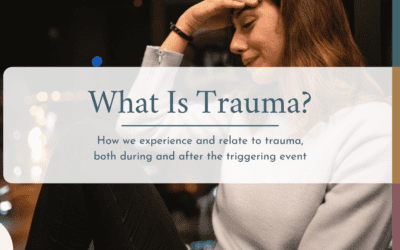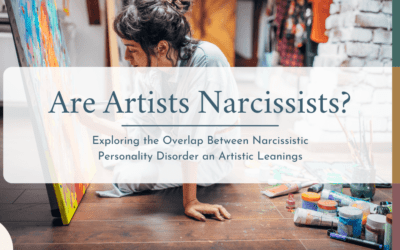A Controversial Blueprint for Human Consciousness "The Changing Images of Man" emerged in 1974 from the Stanford Research Institute as one of the most provocative and influential documents in the history of futures research. This comprehensive report, later published as a book, represented an unprecedented attempt to map humanity's psychological and mythological evolution at a time of profound civilizational crisis. The document's creation involved a remarkable confluence of military industrial research,...
Anthropology and Evolutionary Psychology: Understanding Human Nature Through Therapy

Exploring the Ancient Roots of Modern Mental Health in Birmingham, Alabama
Welcome to Taproot Therapy Collective’s comprehensive exploration of how anthropology and evolutionary psychology inform modern therapeutic practice. As Birmingham’s leading therapy collective, we bridge ancient wisdom with cutting-edge mental health treatment to help you understand the deeper patterns that shape human behavior and healing.
What is Anthropological and Evolutionary Psychology in Therapy?
Our Anthropology and Evolutionary Psychology blog category examines how millions of years of human evolution continue to influence our mental health, relationships, and healing processes today. This interdisciplinary approach helps Birmingham residents and therapy seekers worldwide understand why certain therapeutic interventions work and how our ancestral past informs present-day psychological wellness.
Through collaboration with leading researchers at institutions like the University of Alabama at Birmingham and insights from the American Psychological Association, we explore how evolutionary perspectives enhance traditional therapy approaches used at our Hoover, Alabama location.
Key Topics We Explore
Evolutionary Trauma and Healing Patterns
Discover how trauma responses that once protected our ancestors can become maladaptive in modern Birmingham life. Our articles examine:
- Ancient survival mechanisms and contemporary anxiety disorders
- How evolutionary mismatch contributes to depression in urban environments
- Traditional healing practices from indigenous cultures and their relevance to modern therapy
Cross-Cultural Mental Health Perspectives
Learn from global therapeutic traditions that inform our practice at Taproot Therapy Collective:
- Jungian archetypes and their universal presence across human societies
- Attachment theory through an evolutionary lens
- How different cultures approach trauma, healing, and community support
The Biology of Connection and Belonging
Explore the deep human need for community and how it impacts mental health:
- Evolutionary basis of social anxiety and belonging needs
- How modern isolation affects our ancestrally-wired brains
- Building therapeutic communities that honor our evolutionary heritage
Rituals, Dreams, and Symbolic Healing
Examine how ancient practices inform contemporary therapeutic interventions:
- The adaptive functions of dreaming and their role in trauma processing
- Ritual and ceremony in healing from an anthropological perspective
- Art therapy and creative expression as evolutionary adaptations
Why This Approach Matters for Birmingham Therapy Seekers
Understanding the evolutionary context of mental health helps clients at Taproot Therapy Collective develop deeper self-compassion and insight. When we recognize that many psychological struggles stem from mismatches between our ancient brains and modern environments, healing becomes more accessible and shame-reducing.
Our Birmingham-based therapists integrate these perspectives with evidence-based treatments like EMDR, Internal Family Systems, and trauma-informed care to provide holistic healing that honors both your individual story and our shared human heritage.
Research-Based Insights from Leading Institutions
We regularly feature insights from:
- Harvard’s Department of Human Evolutionary Biology
- Stanford’s Center for Compassion and Altruism
- The Institute for New Economic Thinking
- National Institute of Mental Health evolutionary psychology research
Connect with Our Community
For deeper exploration of these topics, check out more on the Discover + Heal + Grow Taproot Therapy Collective blog and podcast where we regularly feature expert interviews, client stories, and practical applications of evolutionary psychology in therapy.
Subscribe to our channels for weekly insights:
- 🎥 GetTherapyBirmingham YouTube Channel – Weekly videos on evolutionary psychology and mental health
- 🎧 Taproot Therapy Collective Podcast – In-depth conversations with experts and practitioners
- 📱 Follow us on Instagram for daily inspiration and tips
- 💼 Connect on LinkedIn for professional insights
- 🗺️ Find us on Google Maps for easy location access
- 💬 Join our Reddit community for discussions and support
Who Benefits from This Perspective?
This blog category serves:
- Mental health professionals seeking to expand their theoretical understanding
- Therapy clients wanting to understand their struggles in a broader context
- Academic researchers interested in applied evolutionary psychology
- Birmingham residents looking for culturally-informed mental health resources
- Anyone curious about the deep roots of human behavior and healing
Featured Article Categories
Our Anthropology and Evolutionary Psychology blog includes:
- Evolutionary Trauma Theory – Understanding PTSD through an adaptive lens
- Cultural Healing Practices – Learning from global therapeutic traditions
- Attachment and Bonding – How evolution shaped our relationship patterns
- Modern Mismatch – Why ancient brains struggle with contemporary life
- Therapeutic Rituals – Incorporating ceremony and symbolism in healing
- Community and Belonging – The evolutionary basis of social connection
- Dreams and Consciousness – Exploring the adaptive functions of sleep and dreaming
Start Your Journey Today
Ready to explore how understanding your evolutionary heritage can accelerate your healing journey? Our Birmingham-based therapists at Taproot Therapy Collective are trained in these integrated approaches.
Contact Taproot Therapy Collective: 📍 2025 Shady Crest Dr. Suite 203, Hoover, AL 35216
📞 (205) 598-6471
🌐 www.GetTherapyBirmingham.com
🎧 Podcast: gettherapybirmingham.podbean.com
The Psychology of the Dragon Archetype
Anthropology and Evolutionary Psychology for Therapy, Mythology and Therapy
"Perhaps all the dragons in our lives are princesses who are only waiting to see us act, just once, with beauty and courage. Perhaps everything that frightens us is, in its deepest essence, something helpless that wants our love." - Rainer Maria Rilke Dragons have captivated the human imagination since time immemorial. These mythical beasts appear in the folklore and legends of cultures across the globe, from the fire-breathing dragons of medieval European lore to the wise and benevolent dragons revered in the...
Who was Owen Barfield?
Anthropology and Evolutionary Psychology for Therapy, Psychotherapy Biographies: Historical Figures in the History of Psychology
Prophet of the Evolution of Consciousness Owen Barfield (1898-1997) was a British philosopher, poet, and critic whose groundbreaking work focused on the evolution of human consciousness and its relationship to language and imagination. A close friend of C.S. Lewis and J.R.R. Tolkien, Barfield was a core member of the Inklings literary group and widely recognized as one of the twentieth century's most original thinkers. Born in London, Barfield studied at Oxford, where he first met C.S. Lewis in 1919. Their...
The Mystical Roots and Therapeutic Fruits of Initiation Rites
Anthropology and Evolutionary Psychology for Therapy, Christian Mysticism in Therapy, Comparative Religion for Therapy, Jungian Therapy and Depth Psychology, Ritual and Initiation, Spirituality and The Transcendent Function in Psychotherapy
Is Psychotherapy a Type of Initiation Have you ever been part of a fraternity, sorority, or similar organization? If so, you may have experienced rituals or ceremonies that felt both challenging and transformative. Even if you haven't, you've likely encountered such rites of passage in religious services, coming-of-age celebrations, or weddings. These experiences tap into a deep human need for initiation—a symbolic death and rebirth that ushers us into a new stage of life. We see this theme in modern day rituals...
Unraveling the Mystery of the Roman Dodecahedra:
Anthropology and Evolutionary Psychology for Therapy, Mythology and Therapy, Psychology of History
An In-Depth Exploration of the Orphic Cult Object Theory Among the most enigmatic artifacts from the ancient world are the so-called Roman dodecahedra - small, hollow, twelve-faced polyhedrons made of bronze or stone, each face featuring a circular hole of varying diameter. Approximately 100 such objects, dated primarily to the 2nd-4th centuries CE, have been unearthed across the expanse of the former Roman Empire, with particular concentrations in the western provinces of Gaul and Britain. Despite...
Schizophrenia, Trauma, and the Double Bind: Bridging Neurobiology, Depth Psychology, and the Spectrum of Psychosis
Anthropology and Evolutionary Psychology for Therapy, Color Psychology, Jungian Therapy and Depth Psychology, Recovering from Abuse
Understanding Trauma Through Schizophrenia and Schizophrenia Through Trauma The relationship between schizophrenia and trauma has long been a subject of fascination and debate in the fields of psychiatry and psychology. While early theories often focused on developmental and psychodynamic factors, recent research has shed new light on the neurological and genetic underpinnings of the disorder. However, this does not mean that environmental factors, such as trauma, have been ruled out as contributing to the onset...
Illuminating the Mind: Lessons Psychology Can Learn from Anthropology and Philosophy
Anthropology and Evolutionary Psychology for Therapy, Phenomenology and Existential Psychology, Philosophy for Therapists, Ritual and Initiation, Spirituality and The Transcendent Function in Psychotherapy
Why Does Psychology Ignore Philosophy and Anthropology? Time moves in one direction, memory in another.<br> We are that strange species that constructs artifacts intended to counter the natural flow of forgetting. - William Gibson, "Dead Man Sings" Psychology, as the scientific study of the mind and behavior, has made tremendous strides in understanding the human experience. However, two other disciplines - anthropology and philosophy - offer profound insights that can enrich and expand psychological...
PTSD and Intuition: Did Our Reptile Ancestors have a Literal Third Eye?
Anthropology and Evolutionary Psychology for Therapy, Brainspotting in Alabama: Revolutionary Trauma Therapy for Deep Healing, Color Psychology, Jungian Therapy and Depth Psychology, Somatic Experiencing In Alabama
The Subcortical Brain and the Roots of the Unconscious The human mind is a vast and complex landscape, with conscious awareness representing only the tip of the iceberg. Beneath the surface lies a realm of unconscious processes, instincts, and archetypal patterns that profoundly shape our perceptions, emotions, and behaviors. In recent years, advances in neuroscience and depth psychology have begun to shed light on the evolutionary roots of the unconscious mind and its intimate connection to the subcortical brain...
From Mal’ta to Eden: Tracing the Archetypal Roots of Human Mythology
Anthropology and Evolutionary Psychology for Therapy
Is the Mal'ta-Buret culture the prototyp for world religion? In the remote reaches of Siberia, archaeologists uncovered a fascinating window into the deep prehistory of human symbolic thought: the Mal'ta-Buret' culture. Dating back some 20,000-25,000 years, this Paleolithic society left behind intriguing artifacts that resonate uncannily with mythological motifs from much later periods (Bednarik, 2012). From exquisite Venus figurines to mysterious bird-man statuettes, the Mal'ta-Buret' culture offers a...
Biosemiotics: Bridging Biology, Consciousness, and the Anthropology of Self
Anthropology and Evolutionary Psychology for Therapy, Psychology of Media and Culture, Psychology of Modernism Post Modernism and the Meta Modern
What is Biosemiotics? Biosemiotics is an emerging interdisciplinary field that explores how living systems create, interpret, and communicate meaning. It offers a unique lens through which to understand the intricate relationships between biology, consciousness, and the way we construct our sense of self. By bridging these domains, biosemiotics provides valuable insights into therapy, trauma, and the anthropology of self. At its core, biosemiotics posits that life is inherently semiotic - that is, all living...
Why Consciousness Won’t Emerge from Large Language Models:
Anthropology and Evolutionary Psychology for Therapy, Jungian Therapy and Depth Psychology
The Competing Elements of Human Consciousness Introduction The quest to create artificial consciousness has long captured the human imagination. From the golems of Jewish folklore to the robots of modern science fiction, we have dreamed of breathing mental life into inanimate matter. In recent years, the rapid advancement of large language models (LLMs) like GPT-3 and PaLM has reignited hopes that machine consciousness may be within reach. These AI systems, trained on vast corpora of human knowledge, can engage...
Consciousness and Depth Psychology: Insights from Michael Gazzaniga
Anthropology and Evolutionary Psychology for Therapy, Jungian Therapy and Depth Psychology, Psychotherapy Biographies: Historical Figures in the History of Psychology
What are the Origins of Conciousness? The nature of consciousness has long been one of the most profound and perplexing questions in psychology, neuroscience, and philosophy. How does subjective experience arise from the objective, physical processes of the brain? What is the relationship between mind and matter, between the inner world of thoughts and feelings and the outer world of neurons and synapses? In his groundbreaking book The Consciousness Instinct, neuroscientist Michael Gazzaniga offers a compelling...
Consciousness, Emotion and the Self
Anthropology and Evolutionary Psychology for Therapy, Jungian Therapy and Depth Psychology, Symbolism and Meaning in Psychotherapy
Where Does Conciousness Come From? Where did conciousness come from?The nature of human consciousness has long been one of the great mysteries of science and philosophy. What is this subjective inner experience that seems to define our existence? Where does our sense of self come from? And what happens when the psyche is shattered by trauma? In recent decades, groundbreaking work by neuroscientists like Michael Gazzaniga and Antonio Damasio has shed new light on these profound questions. While approaching the...
Glossary of Blog Articles
Anthropology and Evolutionary Psychology for Therapy, Jungian Therapy and Depth Psychology, Mythology and Therapy
Our blog is designed as a resource for those seeking to deepen their understanding of the human psyche and its expression through culture, therapy, and history. Below, you'll find an overview of the diverse topics we cover and an invitation to explore the categories that resonate most with your interests. Jungian Innovators Dive into the foundational ideas of depth psychology with articles that celebrate the works of Jungian visionaries such as Carl Jung, James Hillman, Marie-Louise von Franz, and more. These...
Walter Ong: Orality, Literacy, and the Jesuit Worldview
Anthropology and Evolutionary Psychology for Therapy, Psychology of Media and Culture, Psychotherapy Biographies: Historical Figures in the History of Psychology
I. Who was Walter Ong Walter J. Ong (1912-2003) was an American Jesuit priest, professor of English literature, and cultural and religious historian. Ong made groundbreaking contributions to the fields of literacy studies, media ecology, and the evolution of human consciousness. His work explored the profound differences between oral and literate cultures and how the shift from orality to literacy has shaped human thought, expression, and social organization throughout history. As a Jesuit scholar, Ong's ideas...
Timotheus Vermeulen and Robin van den Akker: Integrating Modernity, Postmodernity and the Therapeutic Encounter
Anthropology and Evolutionary Psychology for Therapy, Comparative Religion for Therapy
Who are Timotheus Vermeulen and Robin van den Akker? In their seminal 2010 essay "Notes on Metamodernism", cultural theorists Timotheus Vermeulen and Robin van den Akker outlined an emerging cultural paradigm they dubbed "metamodernism". Oscillating between the opposing poles of modernist sincerity and postmodern irony, the metamodern sensibility attempts to transcend the aporia of the postmodern era without regressing to the naivete of the modern. This article will explore the implications of Vermeulen and van...
The Future of Therapy: Navigating the Tensions of Our Time
Anthropology and Evolutionary Psychology for Therapy, History of Psychotherapy, Jungian Therapy and Depth Psychology, Metamodernism and Deconstruction
As a practicing therapist, I find myself constantly grappling with the widening gulf between the realities of clinical work and the priorities of the academic and research establishment in psychology. We are living through a time of profound cultural and epistemological transition, and the assumptions that have long undergirded the mental health field are showing serious cracks. If psychotherapy is to remain relevant and vital in the coming decades, we will need to radically re-envision both the form and content...
The Mythic Wisdom of Joseph Campbell: Insights for Anthropology and Psychotherapy
Anthropology and Evolutionary Psychology for Therapy, Comparative Religion for Therapy, Jungian Therapy and Depth Psychology, Psychotherapy Biographies: Historical Figures in the History of Psychology
Illuminating the Hero's Journey of the Human Soul by [Author Name] | [Date] "Myth is much more important and true than history. History is just journalism and you know how reliable that is." - Joseph Campbell 1. Who was Joseph Campbell Joseph Campbell (1904-1987) was an American mythologist, writer, and lecturer, best known for his work in comparative mythology and religion. His work is vast, covering many aspects of the human experience. Campbell's lifelong fascination with myth and his deep knowledge of...
The Existential Psychology of Viktor Frankl:
Anthropology and Evolutionary Psychology for Therapy, History of Psychotherapy, Phenomenology and Existential Psychology, Philosophy for Therapists, Psychotherapy Biographies: Historical Figures in the History of Psychology
Finding Meaning in the Face of Suffering "Everything can be taken from a man but one thing: the last of the human freedoms — to choose one's attitude in any given set of circumstances, to choose one's own way." Viktor E. Frankl, Man's Search for Meaning Viktor Emil Frankl (1905-1997) was an Austrian psychiatrist, neurologist, philosopher, author, and Holocaust survivor who founded the school of logotherapy, a meaning-centered approach to psychotherapy. His harrowing experiences in Nazi concentration camps shaped...
The Bridge Between Ancient Wisdom and Modern Practice
Anthropology and Evolutionary Psychology for Therapy, Comparative Religion for Therapy, Guided Meditations for Therapy, Jungian Therapy and Depth Psychology
How Can Ancient Practices Inform Modern Therapy In today's fast-paced world, an interesting phenomenon has occurred - ancient spiritual practices that originated hundreds or thousands of years ago have undergone a remarkable transformation, evolving from their roots as sacred rituals and ceremonies into secular, evidence-based therapeutic techniques and wellness trends. A closer look reveals fascinating insights into how traditional wisdom continues to shape contemporary approaches to well-being, offering a...
Ethics of Care in Psychotherapy
Anthropology and Evolutionary Psychology for Therapy, Jungian Therapy and Depth Psychology
Interdisciplinary Insights from Philosophy, Anthropology, and Therapy The ethics of care is a moral philosophy that emphasizes the importance of empathy, compassion, attentiveness, and responsibility in human relationships. It challenges traditional Western ethical theories that prioritize abstract principles, individual rights, and impartial reasoning. Instead, care ethics recognizes the centrality of caring relations in human life and moral development. This article delves into the interdisciplinary connections...
Psychedelic Therapy and Shamanism:
Anthropology and Evolutionary Psychology for Therapy, Jungian Therapy and Depth Psychology
What Can We Learn from Indigenous Practices? The Resurgence of Psychedelics in the Modern World In recent years, there has been a resurgence of interest in psychedelic substances as potential tools for healing and self-discovery. After decades of stigma and criminalization, drugs like psilocybin, LSD, and MDMA are now being studied in clinical trials for their therapeutic benefits. At the same time, many people are turning to indigenous shamanic traditions that have long used plant medicines and altered states of...
Beyond the Individual: Philosophical and Anthropological Perspectives on Collective Trauma
Anthropology and Evolutionary Psychology for Therapy, Jungian Therapy and Depth Psychology
Philosophical and Anthropological Perspectives on Collective Trauma The Cultural Embeddedness of Trauma While traditional psychotherapy focuses on healing the individual psyche, many philosophical and anthropological perspectives suggest that personal wounds are deeply embedded in larger cultural traumas. From war and oppression to displacement and genocide, shattering societal ruptures leave scars that can endure for generations, shaping both individual and collective psyches. This article examines some key...
The Philosophy of Suffering:
Anthropology and Evolutionary Psychology for Therapy, Jungian Therapy and Depth Psychology
Insights from Global Cultures on the Nature of Pain and Healing What can therapy learn from ancient cultures? Suffering is a universal human experience, yet the way we make meaning of our pain is profoundly shaped by our cultural context. By examining diverse philosophical and cultural perspectives on suffering, therapists can gain a deeper understanding of their clients' lived experiences and develop more effective, empathetic approaches to treatment. Western Philosophy: Suffering as a Problem to be Solved In...
The Rituals of Healing:
Anthropology and Evolutionary Psychology for Therapy, Comparative Religion for Therapy, Jungian Therapy and Depth Psychology, Ritual and Initiation
Anthropological Insights into Modern Psychotherapy Throughout human history and across cultures, rituals and storytelling have played a central role in addressing psychological ailments and facilitating healing. While modern psychotherapy can seem like a far cry from the traditional practices of shamans and healers, a closer examination reveals intriguing parallels in how both employ symbols, narrative, and community to treat mental illness and restore well-being. At their core, healing rituals and psychotherapy...
Myth, Meaning, and the Self: The Role of Archetypes Across Cultures
Anthropology and Evolutionary Psychology for Therapy, Jungian Therapy and Depth Psychology
What Are Myths? How to use Mythology in Therapy? Myths are not just entertaining stories - they are powerful narratives that shape how we understand ourselves and navigate the world. At the heart of mythic tales are archetypes, the universal patterns of human behavior and experience that transcend cultures and time periods (Jung, 1980). By connecting us to something greater than our individual egos, archetypes imbue our lives with deeper meaning and purpose. This article will explore how archetypes from different...
Sacred Spaces in Therapy and Culture: Creating Environments for Healing
Anthropology and Evolutionary Psychology for Therapy, Jungian Therapy and Depth Psychology
Across cultures and throughout history, humans have created sacred spaces for healing, ritual, and spiritual growth. From ancient temples to modern meditation rooms, these environments are imbued with a special quality that fosters safety, insight, and transformation. As philosopher Mircea Eliade (1959) observes, sacred spaces are "hierophanies" where the divine breaks through into the profane world, revealing a deeper order of reality. This article will explore how different cultures create sacred healing spaces...
Friedrich Kittler: Theorist of Media and Technology
Anthropology and Evolutionary Psychology for Therapy, Metamodernism and Deconstruction, Psychology, Psychology of Film and TV, Psychology of Media and Culture, Psychotherapy Biographies: Historical Figures in the History of Psychology
Friedrich Kittler: Digital Theory I. Who was Friedrich Kittler Friedrich Kittler (1943-2011) was a German literary scholar, media theorist, and cultural historian who made significant contributions to the fields of media studies, discourse analysis, and the history of technology. Kittler's work, which draws on a wide range of disciplines including literature, philosophy, psychoanalysis, and information theory, offers a provocative and influential perspective on the ways in which media technologies shape human...
The Revolutionary Life and Ideas of Guy Debord: Exploring the Situationist Critique of Modern Society
Anthropology and Evolutionary Psychology for Therapy, Metamodernism and Deconstruction, Psychology of Media and Culture, Psychotherapy Biographies: Historical Figures in the History of Psychology
Guy Debord: Exploring the Situationist Critique of Modern Society I. Who was Guy Debord Guy Debord (1931-1994) was a French Marxist theorist, philosopher, filmmaker, and founding member of the Situationist International, a radical avant-garde movement that sought to transform everyday life through the fusion of art and politics. Debord's groundbreaking book "The Society of the Spectacle" (1967) presented a scathing critique of modern capitalist society, arguing that authentic social life had been replaced with...
Erich Fromm: Legacy and Relevance to Depth Psychology
Anthropology and Evolutionary Psychology for Therapy, History of Psychotherapy, Psychotherapy Biographies: Historical Figures in the History of Psychology
1. Who Was Erich Fromm? Erich Fromm (1900-1980) was a renowned psychoanalyst, sociologist, and humanistic philosopher who made significant contributions to our understanding of the human condition in the modern world. Born in Frankfurt, Germany, Fromm was deeply influenced by the tumultuous events of the 20th century, including the rise of fascism, the Holocaust, and the Cold War. These experiences shaped his lifelong commitment to exploring the psychosocial roots of authoritarianism, alienation, and the...
Marcel Mauss: The Gift and the Foundations of Social Solidarity
Anthropology and Evolutionary Psychology for Therapy, History of Psychotherapy
1. Who Was Marcel Mauss? Marcel Mauss (1872-1950) was a pioneering French sociologist and anthropologist, best known for his influential essay "The Gift" (1925) and his role in shaping the development of social theory in the early 20th century. A nephew and close collaborator of Émile Durkheim, Mauss played a key role in the establishment of sociology and anthropology as distinct academic disciplines in France, and his work had a profound impact on later thinkers such as Claude Lévi-Strauss, Pierre Bourdieu, and...
The Universe 25 Experiment and the Psychological Stress of Modern Civilization
Anthropology and Evolutionary Psychology for Therapy, Jungian Therapy and Depth Psychology, Psychology of Modernism Post Modernism and the Meta Modern
What Was The Universe 25 Experiment? In the 1970s, ethologist John B. Calhoun conducted a famous experiment called Universe 25. In the study, a colony of mice was placed in a utopian enclosure called a "mouse paradise" with unlimited access to food, water, and nesting materials. The colony rapidly expanded but then exhibited increasingly dysfunctional and abnormal behaviors as overcrowding intensified. Many withdrew from social interaction, some became aggressive, mothers neglected their young, and eventually the...
How do Animals Show Up In Dreams Through Archetypes?
Anthropology and Evolutionary Psychology for Therapy, Jungian Therapy and Depth Psychology, Symbolism and Meaning in Psychotherapy
The Enduring Imprint of the Natural World on the Human Psyche Throughout human history, our relationship with the natural world has shaped our evolution, not only in terms of physical adaptation but also in the realm of the psyche. One of the most profound ways in which this connection manifests is through our relationship with and identification with animals. These creatures, both real and mythological, have long been woven into the fabric of our dreams, stories, and unconscious minds, serving as powerful...
The Yin and Yang of Culture: Navigating Order and Chaos
Anthropology and Evolutionary Psychology for Therapy, Depth Psychology Approaches and Techniques, Jungian Therapy and Depth Psychology
What is the Left Hand Path and Right Hand Path? I. In her haunting short story "The Lottery", Shirley Jackson paints a disturbing portrait of a quaint village where residents gather on a sunny summer morning to enact a brutal annual tradition - the random selection and stoning of a community member. Jackson's allegorical tale serves as a potent reminder of the perils of unthinkingly adhering to tradition and the vital necessity of critically examining cultural norms. Viewed through the lens of Jungian psychology...
The Evolutionary Roots of PTSD: The Lizard Screaming in Your Brainstem
Anthropology and Evolutionary Psychology for Therapy, History of Psychotherapy, Jungian Therapy and Depth Psychology, Ketamine for Trauma and PTSD, Psychology, Recovering from Abuse
Resolving the Conflict Between Lizard and Mammal Brains The human brain is an astonishingly complex and metabolically expensive organ. Weighing in at just three pounds, it consumes a whopping 20% of the body's total energy budget [1]. This high cost is a testament to the brain's incredible processing power, which has allowed humans to become the most intelligent and adaptable species on the planet. But the human brain is not a monolithic entity. Rather, it is a product of millions of years of evolution,...
The Neuroscience and Phenomenology of Brainspotting
Alternative Medicine and Holistic Health, Anthropology and Evolutionary Psychology for Therapy, Brainspotting in Alabama: Revolutionary Trauma Therapy for Deep Healing, Neuroscience and the Brain for Therapists, Therapy Resources for Alabama, Trauma Treatment in Alabama
An In-Depth Exploration of What Brainspotting Does in the Brain Brainspotting is a relatively new psychotherapy approach that combines elements of psychodynamic, somatic, and mindfulness-based therapies to facilitate deep emotional healing and trauma resolution [1]. Developed by David Grand in 2003, brainspotting operates on the premise that "where you look affects how you feel" [2]. By guiding the client's visual focus to specific external positions (brainspots), the therapist can help access and process...
A History of the Witch Archetype, In Preperation for Haloween
Alternative Medicine and Holistic Health, Anthropology and Evolutionary Psychology for Therapy, Mythology and Therapy
What Does the Witch Represent in Psychology? As the nights grow longer and Halloween draws near, our thoughts turn to the spooky, the mystical, and the uncanny. This is the time of year when we confront the shadows - both literal and psychological. One of the most potent and pervasive archetypal images associated with this season is the witch. Reviled and revered, persecuted and empowered, the witch has haunted the human psyche for centuries. But who is the witch, really? Is she merely a Halloween caricature - a...
Graham Harvey’s Relevance to Modern Depth Psychology
Anthropology and Evolutionary Psychology for Therapy, Jungian Therapy and Depth Psychology
Who is Dr. Graham Harvey? Breaking from Early Theorists British scholar Graham Harvey, a prominent voice in religious studies since the 1990s, has played a key role in updating the anthropology of religion for the 21st century. His work breaks from the mold of early luminaries like E.B. Tylor, James Frazer, and Mircea Eliade, who tended to view indigenous and pagan religions through a lens of "primitive" superstition and irrationality. Tylor and Frazer, writing in the late 19th century, largely saw animistic and...
James George Frazer: Pioneering Insights into Myth, Religion, and the Psyche
Anthropology and Evolutionary Psychology for Therapy, Jungian Therapy and Depth Psychology, Psychotherapy Biographies: Historical Figures in the History of Psychology
Who was James George Frazer? James George Frazer (1854-1941) was a groundbreaking Scottish anthropologist, folklorist, and classical scholar whose work laid the foundations for modern anthropology, psychology, and comparative religious studies. Best known for his monumental study of myth and religion, The Golden Bough, Frazer pioneered the comparative method in anthropology, seeking to unveil universal patterns and evolutionary sequences in human beliefs and practices across cultures. His ideas not only shaped...
Trauma, Ritual, and Animism: Integrating the Preconscious Mind
Anthropology and Evolutionary Psychology for Therapy, Neuroscience and the Brain for Therapists
Moreover, the new animism also sheds light on the intimate connection between trauma and intuition in the human brain. Both of these experiences are deeply rooted in the paleomammalian complex and the limbic system, which are associated with emotional processing, memory, and unconscious cognition (MacLean, 1990). This suggests that the capacity for intuitive understanding and the vulnerability to traumatic stress are two sides of the same coin, and that they both reflect the fundamental importance of the unconscious mind in human experience.
Neurological Basis of Intuition, Attachment, and Trauma
Anthropology and Evolutionary Psychology for Therapy, Neuroscience and the Brain for Therapists, Recovering from Abuse
Reckoning with the Spiritual and Mystical in Neurology The Polyvagal Theory and Attachment Stephen Porges' Polyvagal Theory has revolutionized our understanding of the autonomic nervous system's role in regulating emotional states and social engagement (Porges, 2011). According to this theory, the autonomic nervous system plays a crucial role in shaping our emotional experiences and attachment styles. In secure attachment, where caregivers are attuned and responsive, the ventral vagal complex promotes feelings of...
African American Resilience and Creative Expression: Combating Generational Trauma and Reconnecting with Cultural Roots
Anthropology and Evolutionary Psychology for Therapy, Recovering from Abuse, Trauma Treatment in Alabama, Trauma, Depth Psychology, and Social Work
The African American experience has been marked by a history of trauma, oppression, and displacement, resulting in a sense of rootlessness and disconnection from African myths and traditions. However, in the face of these challenges, African Americans have demonstrated remarkable resilience and creativity, finding innovative ways to express their identity, process trauma, and build community through various forms of artistic expression. This paper will explore how African Americans have combated generational...
The Ecology of Enchantment: David Abram’s Earth-Centered Philosophy
Anthropology and Evolutionary Psychology for Therapy, Psychotherapy Biographies: Historical Figures in the History of Psychology
Who is David Abram? "For the first time in history, the human species has seen fit to wander into the realm of the gods, and we have no clue what we are doing here." David Abram (1957-) is a groundbreaking American ecologist, philosopher, and cultural theorist whose work has pioneered a new understanding of the reciprocal relationship between humans and the natural world. Drawing upon his studies of indigenous cultures, his immersion in the natural world, and his creative engagement with the Western philosophical...
Ken Wilber: Mapping the Integral Vision
Anthropology and Evolutionary Psychology for Therapy, Psychology of Mystics, Gurus, and Spiritual Philosophers
Who is Ken Wilbur? Ken Wilber (1949-present) is a pioneering American philosopher and writer whose groundbreaking "integral theory" has sought to synthesize insights from a dazzling array of fields - including psychology, anthropology, sociology, biology, ecology, spirituality, and more - into a comprehensive framework for understanding the human condition. Over a prolific career spanning five decades and over 25 books, Wilber has articulated an increasingly sophisticated model of individual and collective...
Lionel Corbett: Exploring the Psyche, Spirituality, and the Sacred
Anthropology and Evolutionary Psychology for Therapy, Jungian Therapy and Depth Psychology, Psychotherapy Biographies: Historical Figures in the History of Psychology
Who is Lionel Corbett? Lionel Corbett (1945-) is a prominent Jungian analyst, professor, and author whose innovative theories on the relationship between psychology, spirituality, and the sacred have made significant contributions to the fields of depth psychology, transpersonal psychology, and psychology of religion. Over a prolific career spanning several decades, Corbett has developed a rich body of concepts and methods for understanding the role of numinous, spiritual and religious experiences in...
Who is Ginette Paris?
Anthropology and Evolutionary Psychology for Therapy, Jungian Therapy and Depth Psychology, Psychotherapy Biographies: Historical Figures in the History of Psychology
Ginette Paris (1945-) is a French-Canadian psychologist, scholar, and author whose work explores the interplay of mythology, psychology, and spirituality in the modern world. Drawing on the depth psychology of C.G. Jung, the mythological studies of Joseph Campbell, and the feminist spirituality movement, Paris has developed an original and influential approach to the study of myth, ritual, and the sacred feminine in contemporary culture. Paris's intellectual journey began with her early work on anorexia and other...
The Anthropology of Victor Turner: Ritual, Liminality, and Cultural Performance
Anthropology and Evolutionary Psychology for Therapy, Jungian Therapy and Depth Psychology, Psychotherapy Biographies: Historical Figures in the History of Psychology
Who is Victor Turner? Victor Turner (1920-1983) was a pioneering British cultural anthropologist whose innovative theories of symbols, ritual, and performance transformed the study of human society and culture. Over a prolific career spanning four decades, Turner developed a rich body of concepts and methods for interpreting the symbolic dimensions of social life, from the rites of passage of small-scale African societies to the pilgrimage traditions and countercultural movements of complex industrial nations. At...
Stanislav Grof and the Exploration of the Human Psyche: A Visionary Journey into Holotropic States and Transpersonal Realms
Anthropology and Evolutionary Psychology for Therapy, Psychology of Mystics, Gurus, and Spiritual Philosophers, Psychotherapy Biographies: Historical Figures in the History of Psychology
Who was Stanislav Grof? Stanislav Grof, born in 1931 in Prague, Czechoslovakia (now Czech Republic), is a psychiatrist, researcher, and pioneer in the field of transpersonal psychology. His groundbreaking work has explored non-ordinary states of consciousness, including those induced by psychedelic substances and holotropic breathwork, a technique he developed with his wife Christina. Grof's extensive research has shed light on the vast potential of the human psyche, offering new perspectives on psychological...
The Interpersonal Neurobiology of Allan N. Schore: Exploring the Developmental Origins of the Self
Anthropology and Evolutionary Psychology for Therapy, Jungian Therapy and Depth Psychology
Who is Allan Shore? Allan N. Schore, Ph.D. is a pioneering researcher and theoretician whose work has revolutionized our understanding of human development, the emergence of the self, and the process of therapeutic change. Drawing on cutting-edge research from neuroscience, attachment theory, developmental psychology, and psychoanalysis, Schore has crafted a compelling vision of how early relational experiences shape the development of the brain and the capacity for emotional regulation and interpersonal...
The Archetypal Psychology of Steven Mithen: Exploring the Evolution of the Mind
Anthropology and Evolutionary Psychology for Therapy, Jungian Therapy and Depth Psychology, Psychotherapy Biographies: Historical Figures in the History of Psychology
The Archetypal Psychology of Steven Mithen: Exploring the Evolution of the Mind Who is Steven Mithen? Steven Mithen is a leading British archaeologist and anthropologist whose work has revolutionized our understanding of the evolution of the human mind. Drawing on a wide range of disciplines, from cognitive neuroscience to comparative mythology, Mithen has developed a comprehensive framework for understanding how our unique cognitive capacities emerged over the course of evolutionary history. Central to Mithen's...
Arnold van Gennep and the Rites of Passage: Illuminating the Structure of Human Transitions
Anthropology and Evolutionary Psychology for Therapy, Jungian Therapy and Depth Psychology, Psychotherapy Biographies: Historical Figures in the History of Psychology, Ritual and Initiation
Who Was Arnold van Gennep? Arnold van Gennep (1873-1957) was a pioneering French anthropologist and folklorist who made significant contributions to the study of rituals, particularly rites of passage. His seminal work, "Les rites de passage" (The Rites of Passage), published in 1909, provided a comprehensive analysis of the ceremonial patterns that mark an individual's transition from one social status to another. Van Gennep's insights into the structure and function of these rituals have had a profound...
The Evolutionary Psychology of Louise Barrett: Situating Cognition in the Dynamics of Life
Anthropology and Evolutionary Psychology for Therapy, Psychotherapy Biographies: Historical Figures in the History of Psychology
Who is Louise Barrett? Louise Barrett is a professor of psychology and behavioral ecology at the University of Lethbridge in Canada. She is a prominent researcher in the fields of evolutionary psychology and animal cognition, known for her innovative approaches that blend psychological theory with behavioral ecological field studies. Barrett's work challenges traditional cognitivist views of the mind as an abstract information processor, instead situating cognition within the embodied activities and embedded...
Adolf Guggenbühl-Craig: A Innovator in the Cultural Dimension of Myth
Anthropology and Evolutionary Psychology for Therapy, Jungian Therapy and Depth Psychology, Psychotherapy Biographies: Historical Figures in the History of Psychology
Who Was Adolf Guggenbühl-Craig? Adolf Guggenbühl-Craig was a Swiss Jungian analyst and a notable figure in the field of analytical psychology. Born on August 6, 1932, in Basel, Switzerland, his upbringing in a culturally rich environment deeply influenced his intellectual and artistic pursuits. Pursuing a career in psychiatry, he earned his medical degree from the University of Basel before undergoing rigorous Jungian training at the C.G. Jung Institute in Zürich. Under the mentorship of leading Jungian analysts,...
Joseph Henderson: Bridging Cultural Contexts and Analytical Psychology
Anthropology and Evolutionary Psychology for Therapy, Psychotherapy Biographies: Historical Figures in the History of Psychology
Who was Joseph Henderson? Joseph Henderson (1903-2007) was a prominent figure in the field of analytical psychology, best known for his work on cultural attitudes and the concept of the cultural unconscious. A key collaborator of Carl Jung and a founding member of the C.G. Jung Institute in San Francisco, Henderson’s contributions have had a lasting impact on both the theory and practice of analytical psychology. His work on the intersection of culture and the psyche has provided valuable insights into the ways...
Michael Fordham: Integrating Developmental Psychology with Analytical Psychology
Anthropology and Evolutionary Psychology for Therapy, Psychotherapy Biographies: Historical Figures in the History of Psychology
Who was Michael Fordham? Michael Fordham (1905-1995) was a seminal figure in the field of analytical psychology, renowned for his innovative work that bridged the gap between Jungian theory and developmental psychology. As one of the founding members of the Society of Analytical Psychology in London, Fordham played a pivotal role in shaping the practice and theory of analytical psychology in the UK. His extensive work on child development, the concept of the self, and the process of individuation has left an...
Barbara Hannah: Jungian Analyst, Teacher, and Biographer
Anthropology and Evolutionary Psychology for Therapy, Psychotherapy Biographies: Historical Figures in the History of Psychology
Who was Barbara Hannah? Barbara Hannah (1891-1986) was a distinguished Jungian analyst, teacher, and author who made significant contributions to the field of analytical psychology. As one of the first generation of Jungian analysts, Hannah played a crucial role in disseminating and developing Carl Jung's ideas, particularly in the areas of active imagination, the anima and animus, and the psychological significance of animals. Her work as Jung's biographer and her insights into the practice of analysis have left...
The Archetypal Psychology of Anthony Stevens: Synthesizing Evolutionary Science and Depth Psychology
Anthropology and Evolutionary Psychology for Therapy, Jungian Therapy and Depth Psychology, Psychotherapy Biographies: Historical Figures in the History of Psychology
Who was Anthony Stevens? Anthony Stevens (1933-2021) was a prominent Jungian analyst, psychiatrist and prolific author who made significant contributions to the fields of evolutionary psychiatry, archetypal psychology, and the cross-cultural application of Jungian ideas. His innovative work bridged the realms of ethology, neuroscience, anthropology and analytical psychology to shed light on the biological underpinnings and universal patterns of the human psyche. Over his long career, Stevens authored many...
The Archetypal Psychology of Robert Moore: Illuminating the Deep Structures of the Psyche
Anthropology and Evolutionary Psychology for Therapy, Jungian Therapy and Depth Psychology, Psychotherapy Biographies: Historical Figures in the History of Psychology, Ritual and Initiation
"The task of individuation is to consciously align ourselves with this source, to surrender to its archetypal energies and allow them to transform us from within. By differentiating and integrating the King, Warrior, Magician, and Lover within us, we can tap into the generative power of the Self and bring forth our unique gifts in service to the world." The Theories and Ideas of Robert Moore 1. Who Was Robert Moore Phd? Robert Moore, Ph.D. (1942-2016) was a pioneering psychoanalyst, theologian, and scholar who...
The Evolutionary Origins of Religion: Why is Mankind Religious?
Anthropology and Evolutionary Psychology for Therapy, Comparative Religion for Therapy
What did Prehistoric Religion Look Like: Main Ideas and Key Points: The Venus of Willendorf, a Paleolithic figurine, suggests the existence of prehistoric "Venus cults" that venerated female deities associated with fertility and the earth. Prehistoric religions likely involved myth and ritual to explain the world, provide meaning, and promote social bonding. Shamanism, involving altered states of consciousness, may have been an early form of religious practice. The Neolithic Revolution saw the rise of...
Paganism: Insights from Anthropology, Psychology, and Comparative Religion
Anthropology and Evolutionary Psychology for Therapy, Comparative Religion for Therapy, Jungian Therapy and Depth Psychology, Symbolism and Meaning in Psychotherapy
“My point, once again, is not that those ancient people told literal stories and we are now smart enough to take them symbolically, but that they told them symbolically and we are now dumb enough to take them literally.” ― John Dominic Crossan, Who Is Jesus? Answers to Your Questions About the Historical Jesus Main Ideas and Key Points: 1. John Dominic Crossan argues that ancient people told religious stories symbolically, while modern people often interpret them literally. 2. The development of religion...
Helping Your Child Grow Through Fear: Support, Structure, and Stories Pt 2
Anthropology and Evolutionary Psychology for Therapy
Fear and Anxiety and Childhood Worksheet Fear is a normal part of child development. It focuses attention, it directs energy and gives space for a child to grow and integrate new skills or knowledge. Major themes for fears in childhood: Separation; Pain; Aggression; Contamination; Darkness/Monsters; Rejection What a Child Needs from the Parent...
Applying Jungian Psychology to Fiction and Screenwriting: Part 3 Personality Theories
Anthropology and Evolutionary Psychology for Therapy
Read More on Jung here: Carl Jung's Major Influences Jungian Analysis Archetypes Jung’s Method Jungian Thought Read Part 1 and 2 First! part 1: https://gettherapybirmingham.com/the-villain-with…nd-screenwriting/ part 2: https://gettherapybirmingham.com/using-jungian-ps…d-fiction-part-2/ part 3: https://gettherapybirmingham.com/applying-jungian…onality-theories/ Applying Jungian Psychology to Fiction and Screenwriting Character development is a crucial aspect of fiction writing that distinguishes good storytelling...
Is the Precuneus the Secret of Human Spirituality
Anthropology and Evolutionary Psychology for Therapy, Depth Psychology Approaches and Techniques
What part of the brain is responsible for religion? “The Self is the ordering and unifying center of the total psyche (conscious and unconscious) just as the ego is the center of the conscious personality. Or, put in other words, the ego is the seat of subjective identity while the Self is the seat of objective identity. The Self is thus the supreme psychic authority and subordinates the ego to it. The Self is most simply described as the inner empirical deity and is identical with the imago Dei.” ― Edward F....
What is the Pineal Gland: Neuroscience, New Age, Numinous and Nonsense
Anthropology and Evolutionary Psychology for Therapy, Jungian Therapy and Depth Psychology
Crystals are not shaped like the Buddha's face When I was in a bachelors psychology class at Sewanee I had to listen to a student, who was a enthusiast of psilocybin mushrooms, go on a rant to the professor about how there were "magic crystals" in the brain. According to him the crystals were "shaped like the buddha's face" and had been used by "real scientists" to discover things about aliens and mythology. One of these things was that the city of Atlantis, a mythological city that sank, was actually the city...
Is BPD really multiple disorders?
Anthropology and Evolutionary Psychology for Therapy
What is BPD and what are the Millon subtypes: Borderline Personality Disorder (BPD) is a complex and challenging mental health condition that affects how individuals perceive themselves, relate to others, and manage their emotions. It's characterized by a pattern of instability in self-image, interpersonal relationships, and emotions, often leading to impulsive behaviors, intense mood swings, and a deep fear of abandonment. People with BPD frequently struggle with regulating their emotions, which can lead to...
Book Review of Love’s Executioner by Irvin Yalom
Anthropology and Evolutionary Psychology for Therapy
Love's Executioner: A Book Review in the Context of Therapy Published in the 1980s, Love's Executioner consists of a series of short stories, each depicting a different therapy case conducted by Yalom. These stories offer a unique perspective on therapy, providing readers with a glimpse into the therapist's thoughts and reflections during the therapeutic process. Therapy as a Collaborative Endeavor Yalom emphasizes the collaborative nature of therapy, viewing it as a dyadic relationship between the therapist and...
Book Review of The Sacred in the Profane: Exploring Religion and Order
Anthropology and Evolutionary Psychology for Therapy, Comparative Religion for Therapy
Sacred and the Profane: A Pioneering Study of Religion "The Sacred in the Profane" is a significant early work in the academic study of religion. Unlike approaching religion as an unquestionable truth about the universe, the book delves into its exploration as an academic subject. If you have taken a religion 101 class in college, chances are you encountered Eliade's work. While the book may feel dated in some parts due to its age, it still offers valuable insights into the human tendency to create order out of...
Turning the Inner Critic from a Bully into an Ally
Anthropology and Evolutionary Psychology for Therapy
Befriending Your Inner Critic: From Self-Judgment to Self-Empowerment Understanding the Inner Critic The inner critic is that persistent voice in our heads that judges, criticizes, and undermines our every move. Psychologists Sidra and Hal Stone, pioneers of the Voice Dialogue approach, describe the inner critic as one of the many subpersonalities that make up our psyche [1]. This inner voice often develops early in life, internalizing the standards and expectations of parents, teachers, and society. While the...
Nothing Gold Can Stay: A thought experiment about money, wealth, power and the psychology of economy.
Anthropology and Evolutionary Psychology for Therapy
Rethinking Money, Gold, and Value: A Thought Experiment on Alternative Economic Systems What do we truly value as a society? This profound question strikes at the heart of how we structure our communities, economies, and ways of life. In this thought-provoking article, we'll embark on a fascinating thought experiment to reexamine our unconscious assumptions about money, gold, debt, and worth. By challenging the status quo and exploring alternative economic models, we may gain fresh insights into creating a more...
Don’t Block the Hearth Fire
Anthropology and Evolutionary Psychology for Therapy
The Psychology of Urban Planning with Andres Duany
Anthropology and Evolutionary Psychology for Therapy
The Psychology of Music with Tim Rutili of Califone
Anthropology and Evolutionary Psychology for Therapy
Why are Trauma Patients Afraid of Space
Anthropology and Evolutionary Psychology for Therapy
Our phobias are often metaphors for our most unconscious parts of self. In the 2013 movie Gravity, Sandra Bullock plays an astronaut marooned in space. At every moment she is seconds from spinning into the hopeless oblivion of deep space. Bullock’s character must use her ingenuity to navigate the shuttles and space stations to find her way back to earth. During her time in space Bullock is haunted by trauma from her past. Numerous shots suggest that her time in space causes her to regress to infancy and face not...
Talking with Kids About Suicide
Anthropology and Evolutionary Psychology for Therapy
Talking with children about suicide may seem like a dangerous thing for any parent to do. It is frightening to imagine any child experiencing suicidal thoughts so it’s understandable that parents today are fearful of bringing up this scary topic. Parents often fear that talking about suicide will increase the likelihood of suicidal thoughts in children. The data does not support this fear. Talking with kids about suicide is an important protective act that parents can do to help prevent the tragic outcome of a...
Aztec Philosophy by James Maffie Book Review
Anthropology and Evolutionary Psychology for Therapy, Mythology and Therapy
https://www.youtube.com/watch?v=QHJ3JWCM4EE Aztec Mythology is never something that I understood very well. Mesoamerican mythology represents a distinct and unique perspective on the human psyche. Aztec Philosophy by James Maffie explains the metaphysical word view of the Nahua people and their mythology. Aztec philosophy is not only shockingly modern but also reflects our current understanding of physics an space time. Bibliography: Maffie, James. Aztec Philosophy: Understanding a World in Motion. University...
Norse Mythology by Neil Gaiman Book Review
Anthropology and Evolutionary Psychology for Therapy, Depth Psychology Approaches and Techniques, Mythology and Therapy
https://www.youtube.com/watch?v=52Bgj0Y1nNs
What Is Trauma?
Alternative Medicine and Holistic Health, Anthropology and Evolutionary Psychology for Therapy
What Is Psychological Trauma? A Comprehensive Guide Psychological trauma is a complex and often debilitating response to deeply distressing or life-threatening events. This comprehensive guide explores the causes, symptoms, and evidence-based treatments for trauma, providing valuable insights for those seeking to understand and heal from traumatic experiences. The Fight or Flight Response: The Body's Reaction to Danger Understanding the Autonomic Nervous System The fight or flight response, regulated by the...
Does Therapy Help?
Alternative Medicine and Holistic Health, Anthropology and Evolutionary Psychology for Therapy
What is Psychotherapy for? Why Go to Therapy? There are many reasons to go to therapy. You might have problems with anxiety, depression, anger management or have experienced a traumatic event. Some people just feel bad and are not sure what is wrong. They find that therapy helps them identify what they are feeling and why. Our staff at Taproot Therapy are trained to treat a variety of issues and psychological diagnoses. If you have a specific issue you would like to work on we will pair you with someone who...
10 Books That Every Therapist Should Read
Anthropology and Evolutionary Psychology for Therapy
I get asked all the time "How do I become a psychotherapist?" or "How do I go into private practice as a therapist?". The short answer is always to READ, READ, READ. I listened to every audiobook I could get my hands on as an outpatient social worker in my car all day. I read every book I could get my hands on at night. Unfortunately you will not leave a graduate degree with all the tools it takes to function as a private practice therapist. Nor will you stay a very informed clinician if you do not continue to...
Improve Relationships with the Lover Archetype
Anthropology and Evolutionary Psychology for Therapy, Jungian Therapy and Depth Psychology
The Lover is one of the most difficult archetypes to notice that you are experiencing. By its very nature it is seductive and spontaneous. The Lover is most commonly associated with sex, but sex is the smallest part of the archetype. You cannot experience the Lover by yourself, but you do not necessarily have to experience it with another person. Anytime you are pulled into an alluring daydream, swept up in the rhetoric of a rousing speech, or moved to a sense of greater understanding by a work of...
Heal Yourself By Finding Your Inner Child
Anthropology and Evolutionary Psychology for Therapy
The Child is a tricky archetype to find within ourselves. The Child is the first archetype that the self identifies with. The Child has no problem asking for help or expressing it’s emotions and desires loudly and honestly. The Child is a kind of creative anarchy that we lose as adults and rediscover during liminal and transitional spaces in our development. The Child is a freedom we reconnect with when we release the parts of ourselves that have held us back. The Child is the “alive” feeling that addicts begin...
Are Artists Narcissists?
Anthropology and Evolutionary Psychology for Therapy, Depth Psychology Approaches and Techniques, Dreams and the Unconscious, Mythology and Therapy
I had a patient ask me one time if artists were narcissistic. The question sent me for a loop because it hit on such a basic truth about how these personality types communicate. Patients with Narcissistic Personality Disorder are deeply ashamed of some part of themselves on an unconscious level. This shame comes from trauma, abuse or neglect in childhood. The shame is so deep that all of their conscious and unconscious energies go into controlling others perception of themselves and elevating those perceptions to...
Living on the Inside of History
Anthropology and Evolutionary Psychology for Therapy, Depth Psychology Approaches and Techniques, History of Psychotherapy
“For the whole earth is the tomb of famous men; not only are they commemorated by columns and inscriptions in their own country, but in foreign lands there dwells also an unwritten memorial of them, graven not on stone but in the hearts of men. Make them your examples, and, esteeming courage to be freedom and freedom to be happiness, do not weigh too nicely the perils of war. ― Thucydides, History of the Peloponnesian War At each age in our life we think we will feel different when we have grow bigger,...

